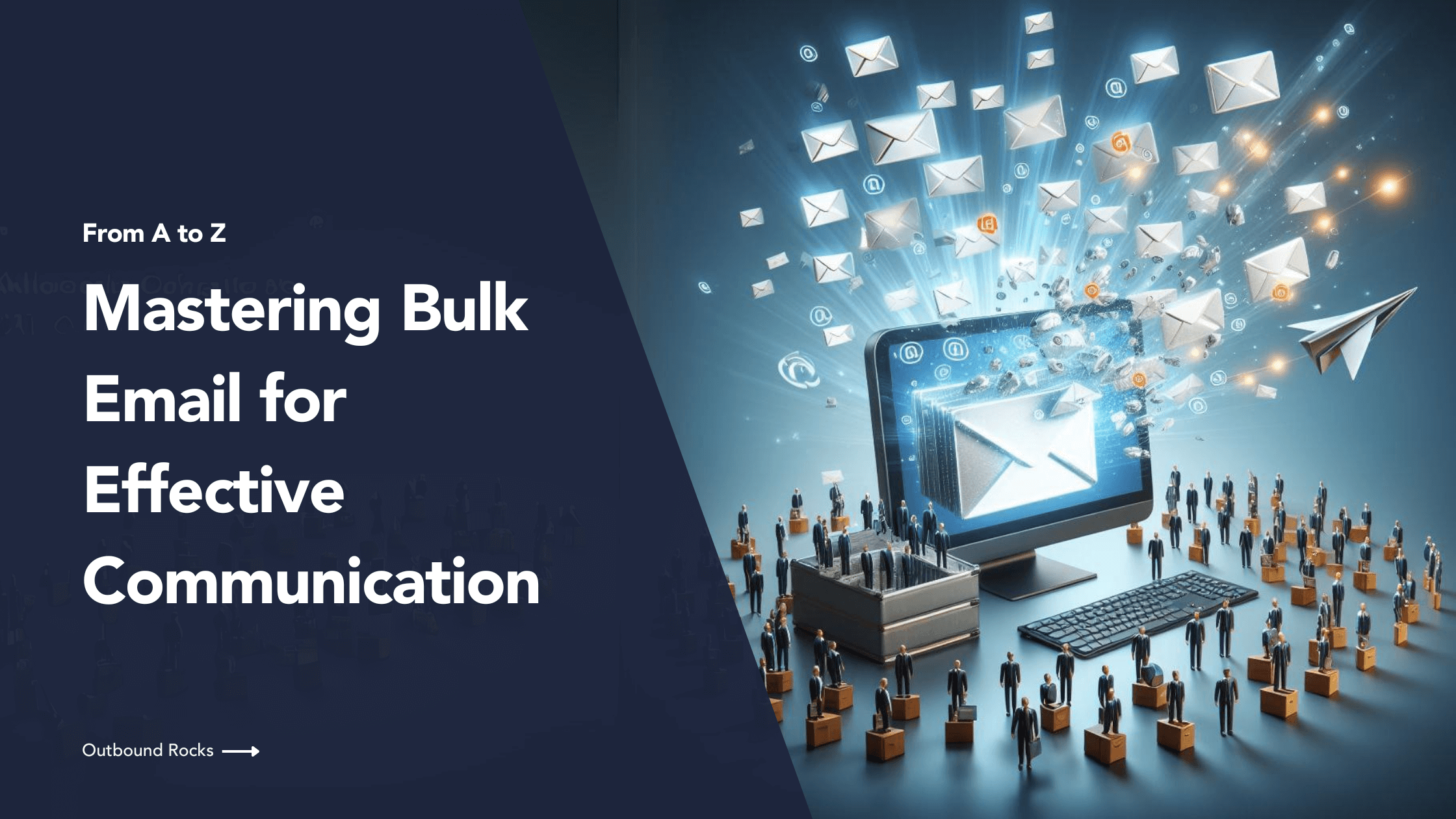Bulk email, also known as mass email, is a powerful communication tool used to send messages to a large group of recipients at once.
Businesses and organizations use this tool for a variety of purposes, from promoting products and services to sharing important updates and maintaining customer relationships.
This article dives into everything you need to know about bulk email, from its benefits and uses to best practices and legal considerations.
Read on to learn how to send mass email and effectively connect with your customers.
TABLE OF CONTENTS
– What is Bulk Emailing
– Pros of Bulk Emailing
– Best practices
– Should your business be using bulk email?
– Conclusions
What is Bulk Emailing
Basically, is a form of communication in which companies send messages to a large number of recipients simultaneously.
This approach allows for the rapid dissemination of time-sensitive information, helping companies scale and maintain efficient communication with their customer base.
Common cases included:
- Product launches
- Promotions
- Service updates
- Price changes
- Marketing campaigns
- Cold outreach
Pros of Bulk Emailing
First, we want to talk about the benefits of mass emailing. From our perspective, these are some of the reasons why you should consider implementing a mass emailing strategy for your business.
1. Reach a wider audience
The main benefit of mass email campaigns is their ability to reach a large audience at once.This is especially beneficial during holiday seasons or promotional events, because allow your business saving time, manual effort and cost.
2. Audience Engagement
Mass email makes it easy to engage with a wide audience by enabling the distribution of newsletters, blogs or informative content. Building trust and maintaining a healthy relationship with customers can lead to increased conversions.
3. Better campaign tracking
Effectively tracking and managing marketing campaigns is critical for businesses. Bulk email makes it possible to monitor open rates, response rates and conversion rates, providing valuable insight for more effective future campaigns.
Best practices of Bulk Email
- Keep your mailing list clean: Build and maintain your mailing list organically and avoid buying lists from third-party platforms. Use reputable lead generation tools like Outbound Rocks to generate authentic, industry-specific leads and improve deliverability.
- Enable double opt-in: Implement double opt-in on sign-up forms to request subscriber consent and ensure that you only send emails to people who are interested in receiving them.
- Avoid spam traps: Avoid purchasing mailing lists from third-party platforms to maintain high deliverability and reduce the risk of falling into spam traps. Spam traps are set up by ISPs to identify and blacklist spammers.
Also:
- Respect subscriber choices: Respect subscriber preferences by immediately stopping email to those who unsubscribe and avoiding communication with inactive users. This practice maintains deliverability rates.
- Maintain a good sender reputation: Avoid spam trigger words in email copy and ensure your IP address is whitelisted. Segment your lead list based on subscriber preferences to deliver targeted content.
- Don’t compromise on content quality: Prioritize content quality by researching and creating valuable content based on customer needs. Proofread content to maintain professionalism and avoid typos or grammatical errors.
Below is an infographic outlining six effective steps for sending bulk emails for targeted results:
Should your business be using Bulk Email?
Finally, we provide some recommendations to help you determine whether your company should be using bulk email.
| Factor | Description |
| Audience size | If you have a large audience or customer base, bulk email can be an efficient way to reach them all at once. |
| Frequency of communication | If you need to communicate with your audience on a regular basis, especially for promotions, updates or newsletters, bulk email can streamline the process. |
| Cost-effectiveness | Bulk email is often less expensive than traditional advertising methods, making it attractive to businesses with budget constraints. |
| Direct access to customers | When direct access to your customers’ inboxes is critical to your marketing strategy, bulk email can provide that advantage. |
| Need for personalization | If you want to tailor your messages to specific customer segments for a more personalized approach, bulk email platforms allow for customization. |
| Analytics and insights | If you value real-time analytics and insight into the performance of your campaigns, bulk email platforms provide valuable data for informed decision-making. |
| Relationship building | If building and maintaining customer relationships over time is a priority, bulk email can serve as a consistent communication channel. |
| Compliance and best practices | Ensure your organization is compliant with email marketing laws and best practices to maintain a positive sender reputation and avoid spam-related issues. |
Conclusions
Effective bulk email campaigns require a focus on authentic list building, subscriber opt-in and delivering quality content.
Do you need a tool that allows your business to send mass emails, develop strategies, and monitor progress for improved sales results? Create a free account now and try our free trial!
